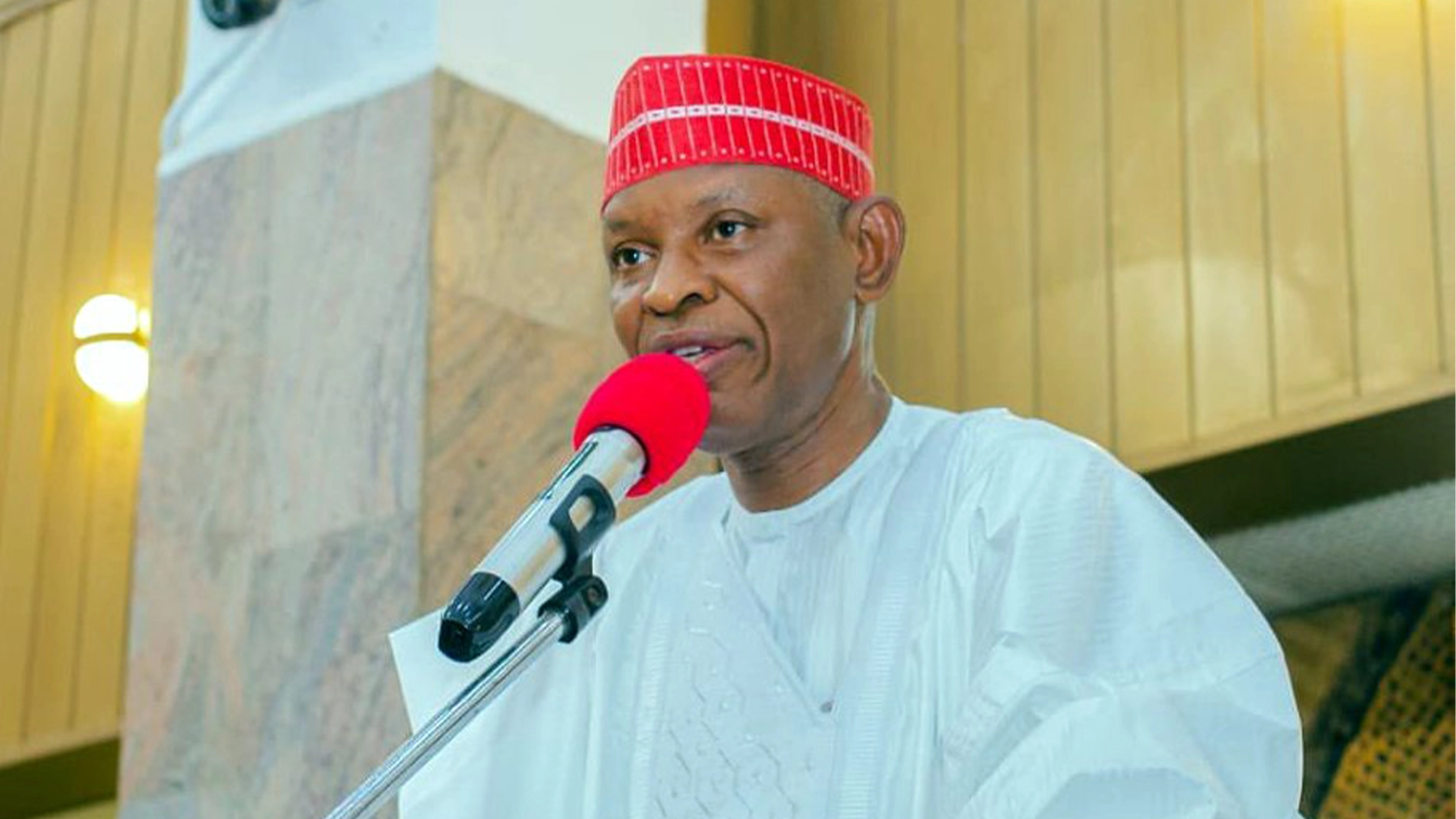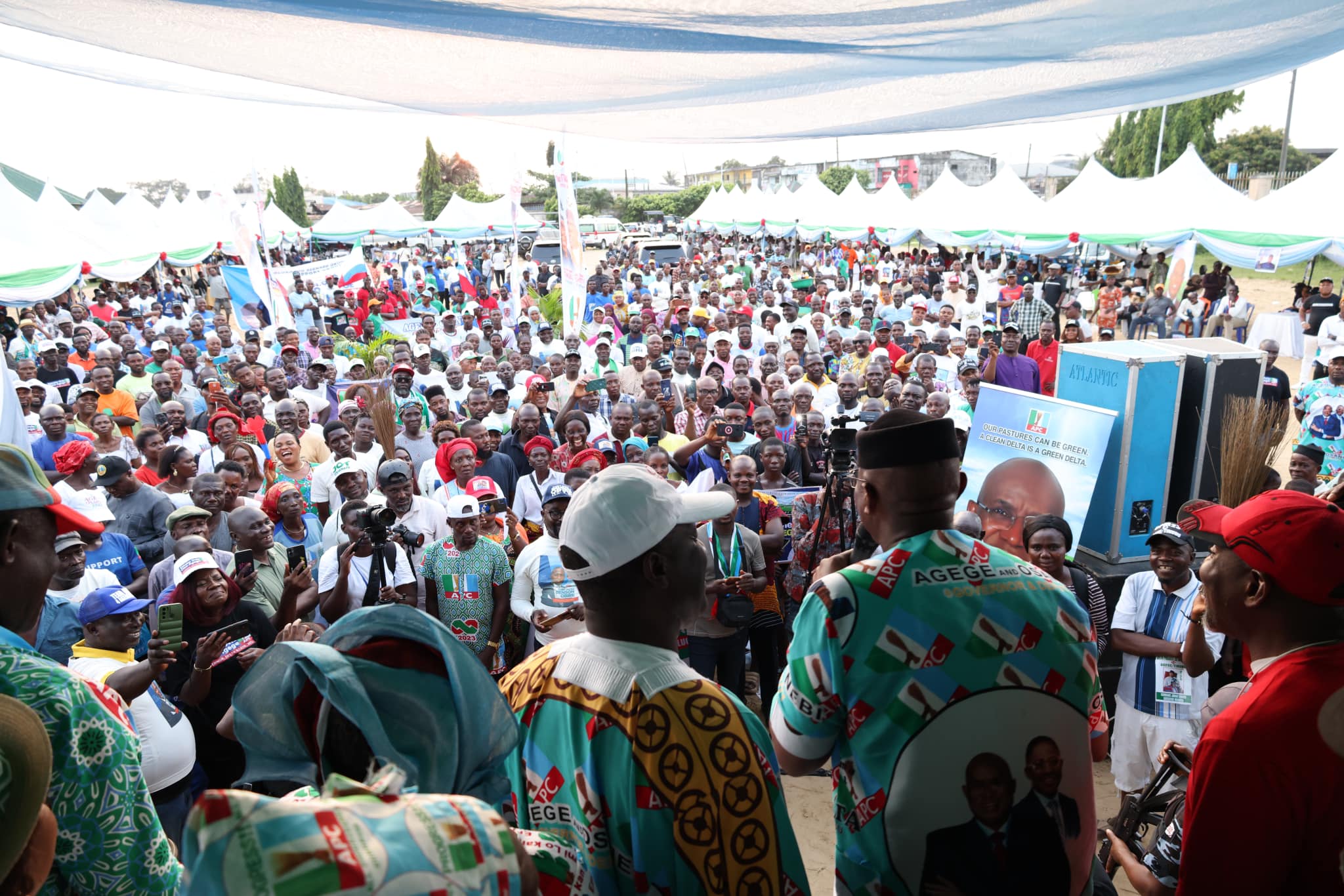
Last week, Labour opted out of the Tripartite National Minimum Wage Committee, that is tasked with negotiating a new wage for workers. The workers’ body said it realised government wasn’t ready for serious business.
Labour said: “Despite efforts to reach an equitable agreement, the less than reasonable action of government and the Organised Private Sector (OPS), has led to a breakdown in negotiations. The government’s proposal of a paltry N48,000 as minimum wage does not only insult the sensibilities of Nigerian workers but also falls significantly short of meeting our needs and aspirations.”
Labour was put off by the Organised Private Sector’s proposal of N54,000, less than the N78,000 already in place. On the N48,000 suggested by government, Labour said workers already earn more than that, if the former minimum wage of N30,000 is added to the 40 per cent peculiar allowance granted by the Buhari government, plus the N35, 000 wage award by the current government. In the reckoning of Labour, the proposals amounted to wage deduction, not increase, hence the unreasonableness in going further with the talks.
The Federal Government had promised by last December that a new minimum wage would commence on April 1, 2024. The Minister of Information and National Orientation, Idris Mohammed, made the promise in response to questions on the 2024-2026 Fiscal Framework budget, which showed government would spend N24.66 trillion on salaries in 2024, 2025 and 2026.
On May 1, Workers Day, when government was supposed to announced the new minimum wage, government was unfazed. The lame excuse was that the tripartite committee was still working. Signs that the committee could as well be another bureaucratic jamboree emerged via a leaked memo, wherein a sum of N1 billion was requested by the SGF’s Office for its funding. It was originally designed to be N1.8 billion. The uproar generated by the public concerning the huge sum tempered the Presidency to scale it down to N500 million, for a start.
The committee consists of 37 members drawn from federal, states and labour representatives. It was put together on January 30, 2024 to ‘speedily’ arrive at a collective bargaining that is fair to all sides. It has held zonal meetings in Lagos, Kano, Enugu, Akwa Ibom, Adamawa and Abuja. Different figures were arrived at as what amounted to living wages at the zonal meetings, ranging from N447,000 to N794,000, depending on what was peculiar to the regions.
Among its membership are six governors representing the six geo-political zones; Governor Mohammed Bago of Niger State, represents the North-central; Governor Bala Mohammed of Bauch State, represents the North-east; Governor Dikko Rada of Katsina State, represents the North-west; Governor Charles Soludo of Anambra State, represents the South-east; Governor Ademola Adeleke of Osun State, represents the South-west, and Governor Otu Bassey of Cross River, represents the South-south. The Federal Government has three ministers and the Head of Service of the Federation, Dr. Yemi Esan to represent its interest.
It is in states Labour has more work to do, despite what is touted as collective bargaining. States are notorious for disobeying federally agreed position on wages. So far, governors have articulated the position that while the Tripartite Committee was yet to conclude its assignment, they were reviewing their capacities to pay a minimum wage that would be sustainable. That’s a blank commitment to improve wages. Neither here nor there.
That indicated another concern that the committee’s outcome might not be binding on states at the end of the day, even when it is documented as a federal law. It appeared not many people bothered to interrogate the prank in the manner Edo State Governor, Godwin Obaseki, hurried and unilaterally to determine a minimum wage for the state. A few days to Workers’ Day, the governor announced an increase of the former N40,000 minimum wage to N70,000 for civil servants, to take effect on May 1, 2024. The governor also crowned that effort with a magnificent edifice, a Labour House, for workers.
That speed however, has connotations, depending on the angle it is interpreted. It could mean that the governor meant to arrest the wind out of the tripartite committee’s slow sail and set a tone for disaggregated wages, in the spirit of true federalism.
That argument had been made, that states should negotiate what they are able to pay. As fine as that seems, some would argue that it cannot be executed while the federation is still fraught with all manner of inequity and injustice. The Federation Account is shared largely on the basis of size and population, hardly on productivity. Those with bigger land mass and more local governments collect more.
Bayelsa State has not stopped whining, that it is shortchanged on the account that it has only eight federally recognised local government areas. Yet, a large pool of the oil revenue that finds its way to FAAC comes from Bayelsa. The harmful effects of oil production are deposited in Bayelsa creeks.
That’s not all. The corporate headquarters of oil companies are located elsewhere. The taxes are paid elsewhere to swell the IGR of host states, while Bayelsa and others are theoretically oil producing.
Of course, oil producing states are entitled to the 13 per cent derivation, which they have not appropriately channelled to develop their states. They also have the Ministry of Niger Delta. The point for now, is that there is inequity in the current FAAC sharing formula and it might not be fair to ask states to pay whatever they can as minimum wages, without first reshuffling the current template.
Obaseki’s bold move could also mean setting a trap for the next government, with elections billed for September to elect a new governor. Since 1999, history has recorded a rash of last-minute decisions and policies ordered by outgoing governors in the bid to gain advantage, some of which decisions were torpedoed when they confronted newer realities and different metrics. While the N70,000 should be commended like the former N40,000, it still does not come close to what the NLC and TUC have in mind, which is N615,000.
Perhaps, an unintended consequence of that Edo first move was the stampede by Lagos State to chronicle a list of welfare packages it claimed civil servants in the state have enjoyed since January, the total of which nearly tripled the N70,000 Edo was offering. When it sounded too good to be true, Lagos offered another explanation, that what it referenced was the payment of the wage award of N35,000 since January, in addition to the N30,000 minimum wage.
As per the new minimum wage, Lagos said it was also waiting for the tripartite committee to complete its assignment. That jolt from Edo seemed like an affront to the Centre of Excellence’s vast resources and the quest to remain the numero uno. That’s a healthy type of competition envisaged for the Governors’ Forum, where states peer-review for improved governance.
The point again, is that there’s likely going to be disharmony with what the committee recommends and what individual states come up with, not minding that they are well represented in the bargains.
Labour had lamented that over 30 states have defaulted in paying the N35,000 wage award floated by the Federal Government to cushion the biting effects of extreme policies imposed by the Bola Tinubu-led government. Since May 29, 2023, when this government came on board, Nigerians were transported from the frying pan of the previous government to a renewed fire.
To save face, the Federal Government initiated palliative measures to deaden the pains of petrol tax among other levies, part of which is the wage award. The agreement with Labour was that the wage award will be paid for six months before a new minimum wage is worked out.
Despite increased allocation from FAAC since June 2023, in addition to other packages, many states don’t see the wage award as an obligation. Instead of N35,000, some merely handed out N10,000 to workers. Even the Federal Government was struggling with paying the wage award, hence the president kept begging states.
Apart from that, many states are still struggling to pay the N30,000 minimum wage that was agreed in 2019. According to BudgiT, an accountability civil society body, as of October 2023, 15 states were yet to implement the N30,000 wage for workers. That did not stop their cumulative personnel cost from growing by 13.44 per cent between 2021 and 2022 as well as increased revenue. States are very stingy when it comes to prioritizing workers’ welfare.
Labour has used current costs to arrive at the N615,000 minimum wage proposal. It is modest by all standards, yet very huge in the eyes of an impoverished citizenry and the task masters in government. The cumulative of this wage in ten years cannot buy a lawmaker’s Toyota Land Cruiser. It is hard to imagine how government can get around this negotiation because the data is out there. If the government were to commission the National Bureau of Statistics (NBS) to articulate a new minimum wage on its behalf, based on NBS’s latest data, government will opt for Labour’s proposal.
The main drivers of inflation- prices of diesel (AGO), premium motor spirit (PMS), electricity, transportation remain very high. Accommodation and transportation in the major cities take a huge chunk of salaries. Food inflation has risen to 40.53 per cent as of April, with headline inflation now at 33.69 per cent. Many workers are gasping for life.
What will make sense is for this progressive government not to throw away this opportunity to commence payment of reasonable living wages to Nigerian workers. The 1999 Constitution at Section 16 (2) (d) has made provision for a nation where, “suitable and adequate shelter, suitable adequate food, reasonable national minimum living wage, old age care and pensions, and unemployment, sick benefits and welfare of the disabled are provided for all citizens.”
Workers are waiting!






